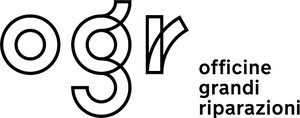Forgive me, distant wars, for bringing flowers home
July 12–September 30, 2018
Curated by Abaseh Mirvali
I apologize for my record of minuets to those who cry from the depths.
I apologize to those who wait in railway stations for being asleep today at five a.m.
Pardon me, hounded hope, for laughing from time to time…
My apologies to the felled tree for the table’s four legs.
My apologies to great questions for small answers.
Truth, please don’t pay me much attention…
My apologies to everything that I can’t be everywhere at once.
My apologies to everyone that I can’t be each woman and each man.
–Wisława Szymborska
Forgive me, distant wars, for bringing flowers home, presented at OGR - Officine Grandi Riparazioni in Turin, aims to unveil the artistic practice of Ramin Haerizadeh, Rokni Haerizadeh, and Hesam Rahmanian by focusing on their methodology, communication, and construction of their works. Over the past few decades, Ramin, Rokni, and Hesam have shared a life philosophy that has allowed for mutual creation, during which their individual practices interact with their collaborative ones and which is informed by the understanding and technical skills of other people. From the dialogues they build among themselves and with other artists, friends, and collaborators—including stage director Joan Baixas, robotic engineer John Cole, community artist Niyaz Azadikhah, film producer Mandana Mohit, and writer Nazli Ghassemi—these artists have established a personal language that has enabled them to present different layers of content and texture in their work.
A vital part of every new activity performed by the artists is the emergence of various dastgah, which in Farsi means “device” or “machine,” and in traditional Iranian music refers to the technical term of “melodic matrix.” By becoming a dastgah, the artists carry out a continuous, repetitive act as if they were “painting machines,” whose body has been covered by an assemblage of objects. Reinterpreting the practice of the objet trouvé, each dastgah selects a series of well-used objects from the artists’ daily lives, which have organically come together during the time the artists have self-inflicted a discipline as a trio. While each dastgah presents some kind of sensory or motor limitation that allows it to hone other senses, moving towards a more repetitive robotic act by becoming the object, worn, battered, or forgotten items are reinvented in a parallel world where they acquire new meanings and become the primary subject. Thus, the objects that cover each dastgah become protagonists in a fictitious world that enters the realm of the viewer via a live performance or the physical presentation of an artwork made by them, while providing subtle, sometimes opaque readings of our contemporary societies.
The current exhibition does not seek to be a retrospective or a survey of the artists’ oeuvre, but rather a demonstration of how they embrace their practice and heterogeneous sense of creation, an attempt to show the work of Ramin, Rokni, and Hesam from a perspective that observes the mechanisms through which their collaborative practice is conveyed but also how it is formed during a creative process that exalts a working philosophy based on a shared reality and the inclusion of others.
–Excerpt from the text by Abaseh Mirvali & Constanza Medina
OGR - Officine Grandi Riparazioni is a cultural production and interdisciplinary experimentation center, stretching over 20,000 square meters, that opened in Turin, Italy on September 30, 2017. Since its opening, OGR has hosted exhibitions, site-specific projects and concerts by artists such as William Kentridge, Liam Gillick, Tino Sehgal, Susan Hiller, Alva Noto, The Chemical Brothers, Kraftwerk, and New Order, among many others.
Supported by Fondazione CRT
With the generous contribution of Alserkal Avenue, Artissima, Fondazione Sandretto Re Rebaudengo
In collaboration with Teatro Regio di Torino
Special thanks to Gallery Isabelle van den Eynde, Galerie Krinzinger, In Situ Fabienne Leclerc


